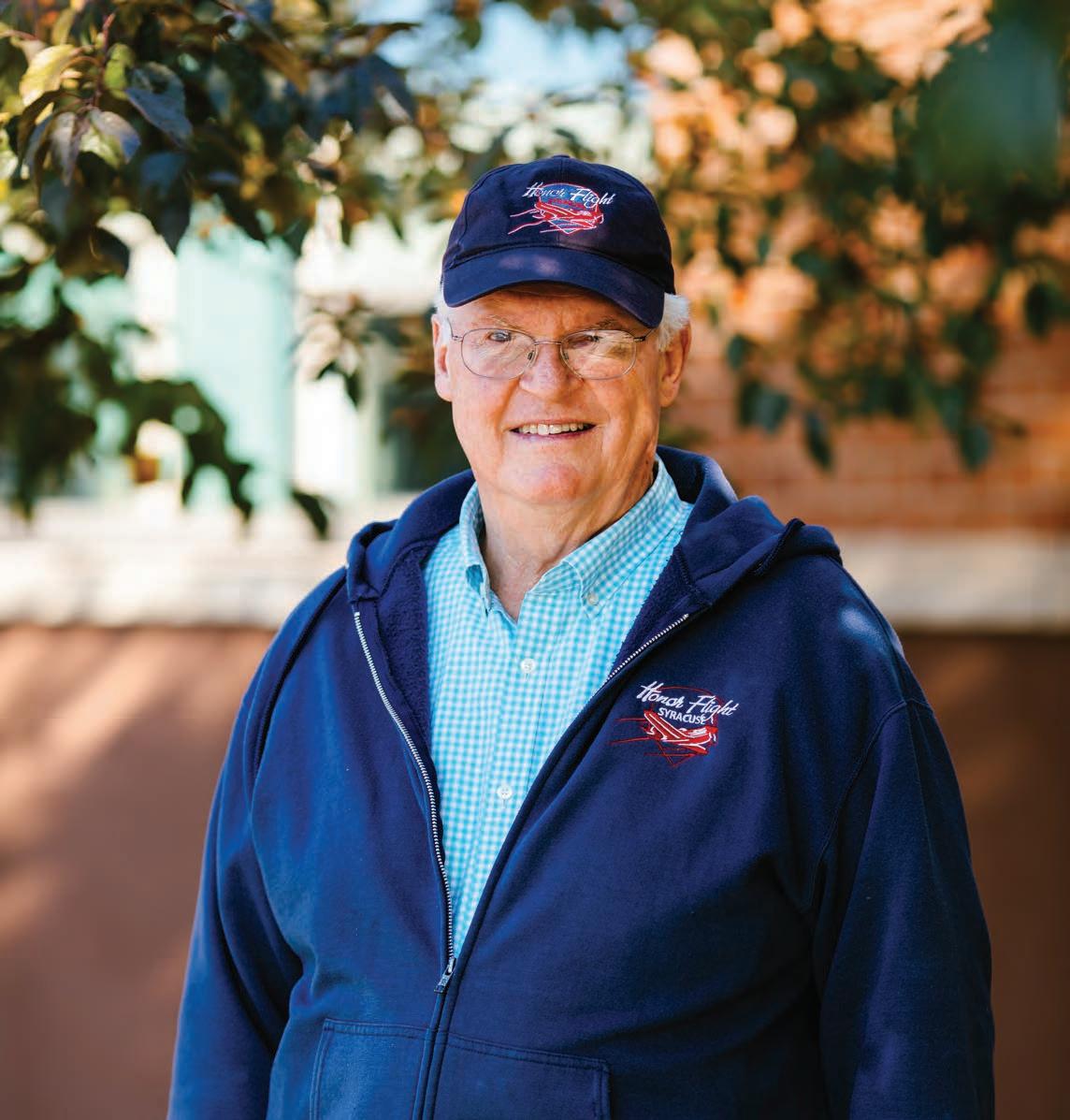
3 minute read
IN THE SPOTLIGHT
Jack Spagnola takes a break during rehearsal of his play
IN THE SPOTLIGHT
Playwright Jack Spagnola ’10 turns serious issues—and the world of kindergarten—into comedy for the stage BY MATT LIEBOWITZ
The current play by Jack Spagnola ’10 was written before 2020, before social distancing, quarantining, masks— before the tumult of emotions that have been a constant part of life since March. But, like all powerful art, the work, Lou (an unintentional search for friendship), feels prescient, almost comically necessary.
“I like to find where sad and funny meet,” Spagnola, 28, said of the play, a segment of which, called “You and Me and the Space Between,” was performed virtually this summer.
Starring Mark Feuerstein (“The West Wing,” “Royal Pains”) and Michaela Watkins (“Casual,” “Saturday Night Live”), Spagnola’s play centers on Lou, a struggling stand-up comic “who performs mostly at old folks’ homes,” and Shirley, a greeting card writer. The two meet on a dating app for people looking for long-distance relationships.
“It’s not quarantine-specific, but it’s about loneliness,” Spagnola explained.
The Brooklyn-based writer sees the play (and the segment) resonating today because it shows how the “little gestures” of humanity are so important in di cult times. “If someone sees this and even for half a day thinks about how they treat someone at the post o ce or the grocery store,” he feels the humanity behind his work will have shown through.
Spagnola said although he doesn’t set out to write comedies, his plays all end up that way. “Comedy allows you to talk about serious issues without actually talking about them. If you make [the audience] feel uncomfortable, expose [their] insecurities, what we’re nervous about—that’s why we laugh. I like bringing people together.”
That search for the humanity in humor stretches back Spagnola’s last trimester at Williston. When students are typically focused on graduation and the summer, Spagnola took Writers’ Workshop, did an independent study in playwriting, and took Emily Ditkovski’s playwriting course.
“It really opened my eyes to so much,” he said, noting the freedom from traditional prose-bound constrictions he had felt in the past writing short stories, and his love of writing dialogue with cadences one might hear in a neighborhood co ee shop rather than an anthologized short story. “What I really love about plays is I don’t have to listen to the rules; it felt so freeing.”
Spagnola credits Williston with allowing him to focus so intently and specifically on fostering his love for the arts. Williston “really allowed me to do what I thought, at the time, was whatever I wanted to do. It was really nice being a senior at a place that trusted me; I really appreciated being at a place where I could really lean in.”
Spagnola’s bona fides are numerous: he studied theater and playwriting at Hampshire College, worked at The Lark, a New-York based incubator for playwrights, wrote three pilot scripts at the UCLA Professional Program for Writing for Television, and has racked up accolades including a semifinal nod in the Eugene O’Neill National Playwrights Conference for his play Little League. He cites Annie Baker, Sarah Ruhl, and Sam Hunter as major inspirations for his style, and for showing him what a play can be, “how they can look and sound di erent.”
But arguably his biggest influence comes from his day job as a kindergarten teacher. “It’s the most fun job I can imagine,” he said. Little League, he explained, was “totally cherry-picked” from talking to parents about parenting, reading books on early childhood education, and being around kids for seven hours a day.
That familiarity with small children is on display in his new work. “I’m used to conflict resolutions with fiveyear-olds,” Spagnola said. In searching for kindness amid catastrophe, for dialogue that’s open and honest, funny and sad, Spagnola said his work looks for “the adult version of that.”
“You and Me and the Space Between” aired online in July and is avilable to be viewed at playdatetheatre.com. Tickets support Color of Change and the YWCA’s COVID Relief Fund.










